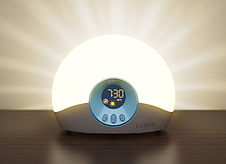 Here’s an interesting term I hadn’t come across before until recently: sleep hygiene. It sounds very clinical but it’s not at all. It just means healthy sleeping practice. Most of the recommendations for good sleep hygiene are common sense, but if you’re anything like me, even if I know something is bad for me it doesn’t always stop me from doing it!
Here’s an interesting term I hadn’t come across before until recently: sleep hygiene. It sounds very clinical but it’s not at all. It just means healthy sleeping practice. Most of the recommendations for good sleep hygiene are common sense, but if you’re anything like me, even if I know something is bad for me it doesn’t always stop me from doing it!
Waking early on weekends is a case in point. I can just about manage these days to wake up to my alarm without feeling too put out, and over the years I have learned that the longer I press the snooze, the worse I feel in the long run. But wake early on weekends? No chance! My weekends exist solely so I can catch up on my much needed sleep… don’t they? I am terrible for sleeping late on weekends and holidays.
Recently I decided to put this sleep hygiene recommendation into practice, and set my alarm only half an hour later than my usual morning alarm. Although I still haven’t been getting out of bed immediately every time, I have found that in general I am up and about a little earlier than usual on weekends for the most part. That’s not to say I don’t still have a long lie in on occasion! But I am definitely taking my Circadian Clock more seriously these days, and trying to keep to a regular routine.
[Update: I’ve written a new article series on How I Overcame Insomnia in 10 Steps which incorporates sleep hygiene among other techniques.]
What is Sleep Hygiene?
Sleep hygiene simply means healthy sleep practices and a healthy sleep routine. “Healthy” can vary from person to person, but most people need at least 7-8 hours of sleep per night. Some people can healthily live on less, others need more. So you may need to experiment a little to discover the correct amount for you.
Too much sleep can actually be detrimental to your health and alertness. When you oversleep, you reduce the drive to fall asleep later in the evening, and have the knock-on effect of disrupting your normal sleep cycle. It’s best to aim for 7 or 8 hours to begin with, and increase or reduce the amount if you find you are still tired or waking up earlier than your alarm.
Naps
Daytime naps don’t necessarily need to be completely avoided, and in fact our natural Circadian Clock includes a small peak in melatonin between 2pm and 3pm (the post-lunch dip) where a short nap would help to increase alertness during the late afternoon and early evening.
However in order to benefit from daytime napping at all, it’s important to keep them earlier in the day, between about 12 and 5pm at the latest, and to keep them shorter than half an hour. Otherwise you risk disrupting your sleep cycle later in the evening.
Stimulants
 It seems obvious to say it, but avoiding stimulants later in the day really helps to wind your body and mind down for the evening before you go to bed. Stimulants can continue to act for several hours after you’ve taken them, so make sure you avoid caffeine after about 4 to 6 hours before you plan to go to bed.
It seems obvious to say it, but avoiding stimulants later in the day really helps to wind your body and mind down for the evening before you go to bed. Stimulants can continue to act for several hours after you’ve taken them, so make sure you avoid caffeine after about 4 to 6 hours before you plan to go to bed.
The prime culprit here is caffeine, which can be found not only in coffee, but also tea, chocolate, some soft drinks and some painkillers. In fact soft drinks such as cola contain more caffeine than tea or coffee. If you are a regular coffee drinker, and are starting to suspect that caffeine may be exacerbating your sleep problems, try limiting your caffeine intake by switching to decaf half way through the day. I now drink Kenco Millicano Decaf Coffee from about 2pm onwards, it’s actually a nice decaf, believe it or not!
Nicotine is another stimulant, so if you smoke or use a vaporiser, avoid taking any nicotine for several hours before bed time.
Alcohol is not strictly a stimulant, and it is known for causing drowsiness, however it does impact the quality of sleep. Too much alcohol before going to bed can disrupt your sleep as the body processes the alcohol to remove it from your system. Moderation is key, a glass of wine an hour or so before bed probably won’t hurt in the long term, but if you’re struggling with your sleeping patterns it could be a good idea to cut back for a while until your sleep cycles are under control.
Exercise
People who exercise regularly experience a better quality of sleep, and report feeling more rested after sleeping, than those who don’t. Exercise stimulates the production of cortisol, which improves alertness and awakeness, so it is best to exercise earlier in the day. If you can’t work out first thing in the morning, aim to squeeze it in at lunch time, or immediately after work. Evening exercise should be gentle stretching and nothing strenuous so as not to stimulate cortisol at a time when you should be winding down.
Mealtimes
The digestion and metabolisation of food after eating can take several hours. If you have ever gone to bed on a full stomach you will know the discomfort that disrupting both your digestion AND your sleep can cause! The body is not designed to process food while you are asleep, trying to do this will make sleeping uncomfortable and cause indigestion as well. Avoid eating a heavy meal right before bed time. Meal times should be at least 3 hours before you plan to sleep.
However, going to bed hungry can also disrupt your sleep, so eat a light snack an hour or so before going to bed – easy to digest carbs or fats (fruit, cookies or dairy products for example) are perfect.
Liquids
Avoid drinking large quantities of liquids before bed, for fairly obvious reasons! If you find yourself regularly waking in the night to use the bathroom, you may need to limit your intake of liquids earlier in the evening. Cutting back on caffeine and alcohol can also help here, as both are diuretic (increase urine production). Again, moderation is key: keep water close to your bed if you do get thirsty, but try to limit drinking in the night time to sips rather than gulps. Make sure you drink plenty of water during the day to keep well hydrated.
Natural Light
The Circadian Clock is a natural hormonal cycle that is roughly synchronised to the Earth’s natural 24-hour night/day cycle. Although it will continue to run without exposure to natural light, it is kept synchronised to the regional night/day cycle where you live by your exposure to natural daylight.
Help your Circadian Clock to correctly regulate your production of sleep hormone melatonin, and waking hormone cortisol, by getting outdoors (or at least near a bright window) in the morning and throughout the day. Artificial light does not usually have the same effect – which is why shift workers often struggle to adjust to a nocturnal lifestyle, as their Circadian Clock is still operating on daylight hours.
However “bright light therapy”, which involves exposure to a form of artificial light which has been designed to mimic natural sunlight, can help if someone is not getting adequate sunlight during the day. These light therapy lamps, also called SAD lamps, could help reduce melatonin in the mornings and help to regulate the Circadian cycles of shift workers and people with some sleep disorders.
The flipside of light in the sleep cycle is to ensure adequate darkness before bed time. Many of us use mobile phones or tablets late into the evening, or work on a computer monitor or laptop screen before going to bed. The light emitted by these screens is on the short-wavelength blue end of the spectrum, which is closer to morning light and can stimulate our retinal cells to signal “morning” to the hypothalamus which controls the Circadian Clock.
Try to limit screen activities for at least an hour before bedtime, and read a book rather than a screen if you can. In fact, although a TV is also a screen, the films and programs we watch are usually a lot darker than the glaring white background of a webpage or Word document. Also, we tend to sit a lot further away from the TV than we do from our laptops or tablets. So, watching a film or TV program is preferable to working on the computer or using a mobile.
That said, there are blue-light filter apps available for phones and tablets which can reduce the glare, and some phones have a night-time mode which flips a white background for a black one in the evening.
Routine
 Our body works well on routine. Establish a good routine including relaxation before going to bed, and stick to your bedtime and waking up time, even on weekends.
Our body works well on routine. Establish a good routine including relaxation before going to bed, and stick to your bedtime and waking up time, even on weekends.
Although sleeping late on weekends feels like a reward for working hard all week, it disrupts your sleeping cycle and leaves you feeling tired again on Monday morning. Try to continue waking up at your normal weekday time on weekends and you will soon become accustomed to it. You may find yourself more productive since you are up earlier!
Relaxation
The last thing someone with anxiety or depression wants to hear is “try not to worry so much”. If we had the answer to that problem, we’d be millionaires! However worrying is a habit as much as anything else, and although sometimes worrying seems inevitable, there are some ways to at least put it off until the morning. Writing problems down before bed can help to “offload” the mind a little, as can reading an engaging book or watching a film. Gentle stretching, meditation, and a warm shower or bath can all help to soothe and relax the mind and body.
A word of caution, however: if you plan to watch a film or read a book, try to avoid anything too exciting, scary or upsetting. Even fictional stress can increase the levels of cortisol just as real stress would do! Choose something calm, funny, or emotionally uplifting at night time and watch your scary movies earlier in the day.
Bedroom Environment
The bedroom needs to be as calming, quiet, and comfortable as possible. Keep the temperature comfortable, and on the cool side (but not cold). Humidifiers and fans can help to regulate temperature. Lighting should be dim and warm toned (as opposed to the blue light from monitors and screens). A dimmer lamp or sunrise alarm clock allows you to control the lighting in your bedroom. Keep electronics out of the bedroom if possible. The bedroom should also be as dark as possible during the night, so use blackout curtains if too much light comes through your bedroom window. An eye mask and ear plugs can help if you live in a noisy or bright neighbourhood, or if you are trying to sleep at a time when others are awake.
The mattress should be medium to firm, and comfortable. You can use a mattress topper if your mattress is uncomfortable. Adjust the height of pillows so that your head is supported but your neck is not strained. Keep the bed and bedsheets clean and dust free (you can vacuum a mattress regularly). Especially those who suffer from allergies and asthma, keep your bedroom as dust free as possible, and manage any symptoms with medication before going to bed. Use non-allergenic pillow cases and sheets.
Source: Harvard University Sleep Department.
I hope this information has been helpful. Practising good sleep hygiene makes for a calmer and more relaxed outlook on life, I know it can sometimes be difficult to break poor sleep habits, but focus on one aspect of sleep hygiene at a time, and work on improving that one thing, rather than trying to do it all in one go. My focus for this month is on waking up at the same time every morning, so that my body does not feel so pained after a weekend of lie ins!
Let me know if you have any other tips or questions in the comments section.
 Here’s an interesting term I hadn’t come across before until recently: sleep hygiene. It sounds very clinical but it’s not at all. It just means healthy sleeping practice. Most of the recommendations for good sleep hygiene are common sense, but if you’re anything like me, even if I know something is bad for me it doesn’t always stop me from doing it!
Here’s an interesting term I hadn’t come across before until recently: sleep hygiene. It sounds very clinical but it’s not at all. It just means healthy sleeping practice. Most of the recommendations for good sleep hygiene are common sense, but if you’re anything like me, even if I know something is bad for me it doesn’t always stop me from doing it! It seems obvious to say it, but avoiding stimulants later in the day really helps to wind your body and mind down for the evening before you go to bed. Stimulants can continue to act for several hours after you’ve taken them, so make sure you avoid caffeine after about 4 to 6 hours before you plan to go to bed.
It seems obvious to say it, but avoiding stimulants later in the day really helps to wind your body and mind down for the evening before you go to bed. Stimulants can continue to act for several hours after you’ve taken them, so make sure you avoid caffeine after about 4 to 6 hours before you plan to go to bed. Our body works well on routine. Establish a good routine including relaxation before going to bed, and stick to your bedtime and waking up time, even on weekends.
Our body works well on routine. Establish a good routine including relaxation before going to bed, and stick to your bedtime and waking up time, even on weekends.